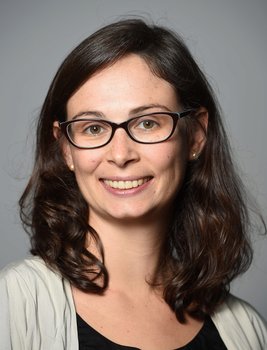The cognitive neurophysiology of speech comprehension
Speech is central to human communication and the most important input for our auditory system. As speech unfolds rapidly in time, a critical prerequisite for speech comprehension is the ability to identify informational units, such as syllables or words, within this continuous acoustic signal. It is well established that fluctuations in the overall speech amplitude are an acoustic correlate for the timing and salience of single syllables (/sam/-/ba/). Yet, both the information content of the speech amplitude envelope and its neural representation are highly debated. In my talk, I will present a series of studies on the neurocognitive role of the speech amplitude envelope. First, using high-density intracranial recordings, I will show that neural populations in human speech cortex sparsely encode rising amplitude edges in the continuous envelope signal, and that these edges mark the timing and internal structure of syllables. Second, I will present results from magneto-encephalography recordings and computational modeling, that together reveal that cortical responses to the speech envelope reflect evoked responses to rising amplitude edges rather than oscillatory entrainment. Finally, I will then show how neural encoding of rising amplitude edges lays the basis for perception of syllabic stress and its relationship to reading development. Taken together, this line of work showcases the central role of rising amplitude edges - a sparse, landmark-based representation of the continous amplitude envelope of speech - in speech comprehension.
Biography
I am a cognitive neuroscientist, interested in auditory cognition and human communication, with a focus on speech comprehension. After a PhD in Psychology and Computational Neuroscience at the Freie Unviersity and Bernstein Center for Computational Neurosciences Berlin (Germany), I spent six years as a postdoctoral researcher at the University of California in San Francisco (USA). Since 2021, I am an independent research group leader at the University of Tuebingen, where I head the human verbal communication laboratory.
I am interested in the extraction of linguistic information from sensory inputs, and in the role of predictive processes in adapting to the sensory variability inherent to dynamic communicative settings. I believe that understanding complex cognitive functions necessitates the integration of different experimental and analytic approaches. Therefore, I combine laboratory experiments employing controlled stimuli with naturalistic sensory stimuli that convey natural variation (e.g., natural speech), and map them to neural signals recorded using electrophysiology (M/EEG, intracranial EEG). A further research interest is the application of our findings to developmental conditions and age-related hearing loss.
